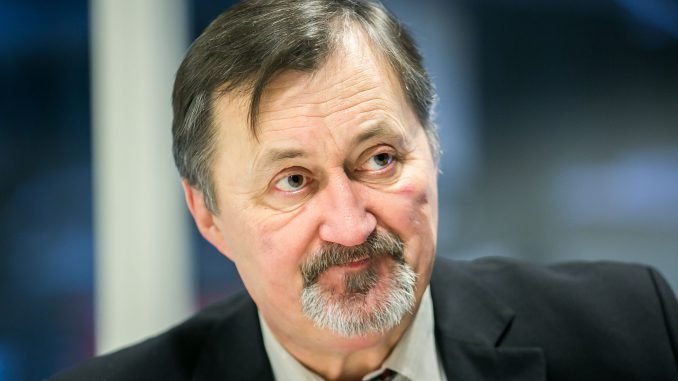
From the very start when Vladimir Putin came to power in Russia in 1999 and his supporting OCG (organised criminal group) formed out of KGB agents and oligarchs, this state and its policies became a true headache for the whole world and primarily for its direct neighbours.
The civilised world has for a long while (a decade and a half) attempted to talk kindly to the international hooligan (or perhaps bandit?), however even the patience of cultured ones can end and thus actions bred a response and dark clouds of problems began accumulating over Putin’s own head.
The 2018 Father Christmas proved merciless to the Kremlin regime as well – a revolt began in Iran against Putin’s “strategic partners” – religious fanatics who terrorise the country, while in Moldova its Constitutional Court removed pro-Russian president Igor Dodon from power.
Let us agree that both these events could not have failed to spoil the mood in the Kremlin’s match and somehow the newly appeared Lithuanian “Dodon” chose to lighten it – our Prime Minister Saulius Skvernelis announced the necessity to recreate formal relations and respective communications channels with Russia (in normal people’s speak – with the OCG it is controlled by).
In other words to recreate relations with the same OCG which shoots down passenger Boeings, organises falsification of its Olympians’ urine tests at the highest levels, which annexed Ichkeria and Crimea and under the guise of puppet formations has occupied a part of Moldova, Georgia and Ukraine (but not yet Lithuania?).
With the one whose soldiers kill civilians in Donbas and Syria, while its secret services – its “own” dissidents, independent journalists and opposition politicians (doing so in Moscow, Kiev, London, Qatar’s capital Doha and everywhere else).
Or perhaps his rascal advisors didn’t tell the PM about all of these acts by the Kremlin’s owners and thus placed him (and all of Lithuania) in an uncomfortable position? After all he is claiming that “we say that they (communication channels – I.M.) must be created”. So who are the mysterious “we”? Please provide a full list. After all people are necessary not only in the state chancellery, but also to lay asphalt. Or drive taxis (if it can be done even by some former State Security Department officers, likely the PM’s advisors can too).
By the way the following statement by the prime minister is interesting, potentially evidence that his cabinet (one member of which – Linas Linkevičius – sort of was indirectly threatened with dismissal) is actually struggling with upholding a principled position toward destruction enacted by Russia: “We openly and with dignity express and will continue to express our principle stances without belittling the Russian state and its people. We are not Russophobes.”
Or this: “Russians in Lithuania (?! – I.M.) are traditionally a strong an in essence well integrated community which has all civic and economic rights, cultural, religious and language expression opportunities.”
Yes, not all Russians are Soviet supporters and putinoids. This is especially to be said about Lithuanian citizens of Russian ethnicity who, based on the context, S. Skvernelis relegated to the “other” side. By the way, this year on April 11, already the fifth Free Russia Forum will be held in Vilnius.
Perhaps the prime minister should visit it and greet the forum’s participants, expressing respect to this thinking and courageous part of Russian society, rather the increasingly fascist leadership of the state.
After all only the worst Russophobes can believe that Putin’s OCG is the real Russia. And overall the prime minister’s claims that normal relations should be recovered with Russia and that positions with allies should be coordinated in this regard sound odd.
It doesn’t work this way. But it does otherwise – when one barks for show, but in reality – collaborates. This is exactly what Putin and his emissaries who crawl around the world desire.
Portugal (by all means a wonderful country) is also a NATO and EU member, but it does not exist at the foot of a volcano (Putinist Russia) and does not have our unfortunate historical experience.
Perhaps such musings would also sound somewhat exotic there, but not criminal. Here they sounded exactly as such and sounded not from some margin, but one of the top individuals of the state. Hence the question arises – does Lithuania need its “own” Dodon?
